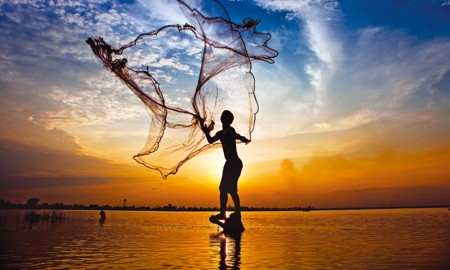Oman enjoys over 1,800 miles of coastline and its pristine waters teem with fish and shellfish. Its lucrative fishing industry has an output of 170,000 tons per year and is considered the country’s most important non-oil source of income.
With a net worth of RO18 million ($47 million) Oman Fisheries Company (OFC) ranks amongst the largest publicly owned companies in Oman with over 17,000 shareholders. It owns four plants in Oman, with a fifth under construction, and has international operations in Yemen, Saudi Arabia, Bahrain and two representative offices for sourcing from India and Vietnam.
Said
Al Rawahi, General Manager of OFC, aims to increase the turnover to RO40 million by 2015 but does not believe that such ambitious expansion plans should come at a cost to the environment or the local community. In fact, OFC recently voted in favor of the government ban on trawler fishing – a practice known to destroy underwater ecosystems and deplete fish stocks.
Al Rawahi explains: “In supporting a ban on trawling, we have created a win-win situation which benefits the environment, the way of life of local fishermen, while at the same time improved quality of stock. We’ve trained fishermen on how to recognize, take care of and enhance the quality of the catch.”
Founded in 1987, no one shareholder is entitled to take more than a 0.25% stake in the company. Local fishermen – who also make up most of its 250 strong fleet – own 70% of the company. Of OFC’s annual catch of 35,000 metric tons, the majority is exported to Europe, the U.S., China and the Far East.
In order to grow the lucrative fishing sector in Oman and take advantage of soaring global seafood demand, Oman’s fishing industry plans to further develop its fishing infrastructure. Al Rawahi believes that Oman’s fishing industry offers significant potential for investors, particularly in the area of fish farming.
“Fish farming is an excellent opportunity for overseas investors to explore in Oman. Our advantage is that we do not have heavy industries so our pollution levels are extremely low. We conducted a pilot project for fish farming at OFC, which proved to be very successful. However, in order to maximize the potential of fish farming here we need to create our own hatcheries and seek partners in this area. For those investors that take a stake in the development of Oman’s fishing sector the rewards will prove extremely lucrative.”

0 COMMENTS